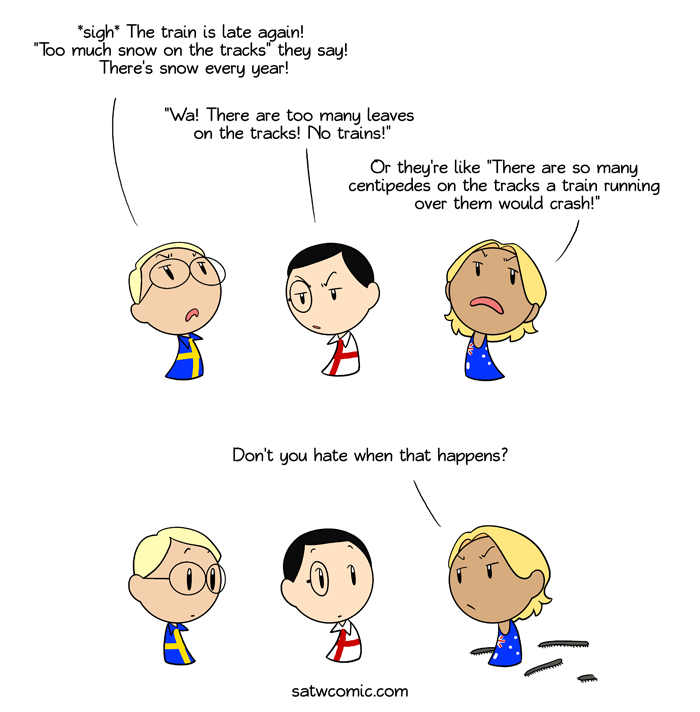7 years ago #9813299
6
0
The German railway, on the other hand, has only five problems: Spring, summer, autumn, winter and customers.
7 years ago #9813274
5
0
In Belgium, when the train you want to catch seems to arrive 5 minutes early, it's only because it's 55 minutes late.
7 years ago #9813376
4
0
I learned recently that sting-less bees live in Australia.
Australia, the land where even the trees try to murder you, has fucking sting-less bees. How's that for irony?
Australia, the land where even the trees try to murder you, has fucking sting-less bees. How's that for irony?
7 years ago #9813198
4
0
Coming from America, I'm jealous you guys have good public rail lines at all.
7 years ago #9814416
3
0
We had a new one a few years back: sunlight. Apparently too much sun on the tracks made the rails expand in a way that mean trains had problems.
I'm beginning to feel there's a future in having all railways underground, all the time. Although earthquakes....
I'm beginning to feel there's a future in having all railways underground, all the time. Although earthquakes....
7 years ago #9813304
3
0
In Romania trains manage to get lost on the tracks, and therefor arrive late.
Add comment: Please Sign in or create an accout to comment.




 Support the comic on
Support the comic on 





























40